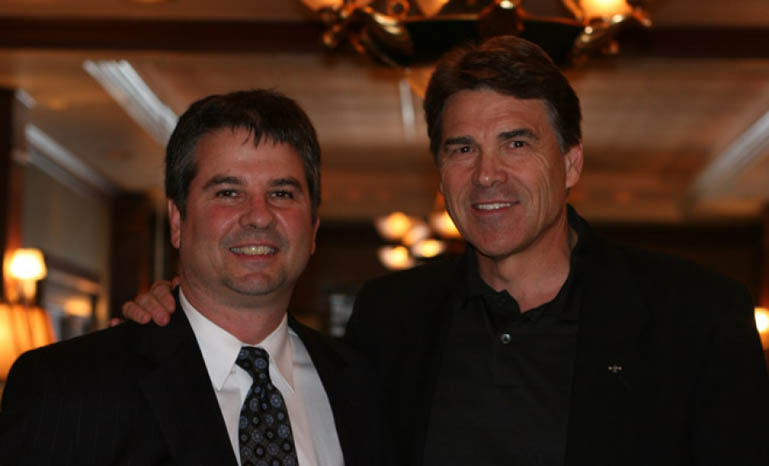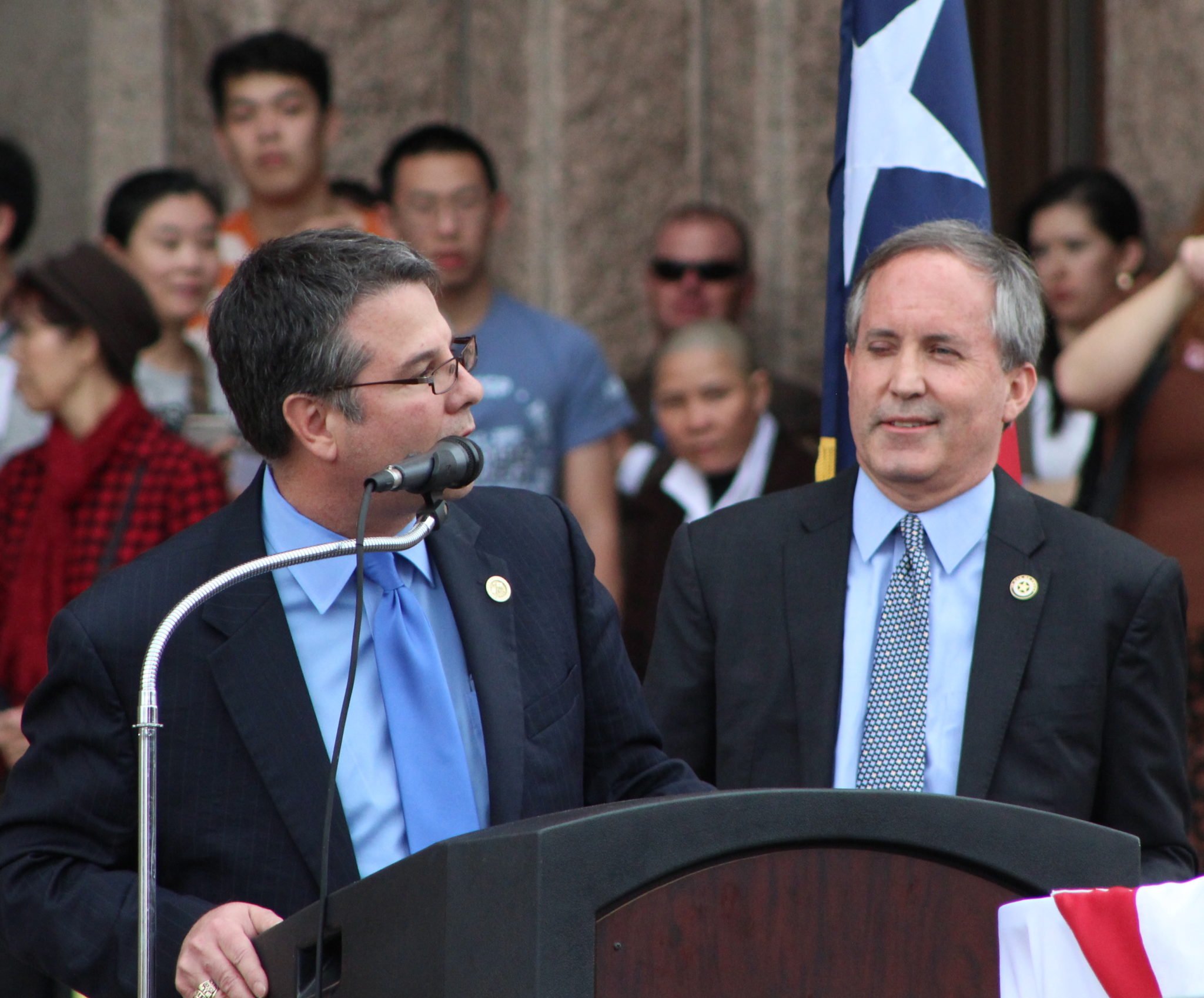
The Increasingly Tea Party Texas Senate: Charles Perry Edition

Have you ever heard that story—probably apocryphal—about Thomas Jefferson and George Washington discussing the proper functioning of our bicameral Congress? The idea, Washington says, is that the House, with intense passions, short terms, and many desks, is like a cup of hot tea. The Senate, which moves glacially, is like the saucer that cools the tea and keeps your hand from being burned.
Here’s the way to think about how the Texas Legislature is going to work next year: The hot tea of the House is still there, but the Senate’s saucer is being replaced by a Bunsen burner.
Special elections for the Texas Senate aren’t exactly the sexiest items on the political calendar, but they’re hugely important. The upper chamber isn’t like the House, which depends on parliamentary-style coalitions. The Senate is the sum of its personalities—every new member counts. And the next Senate’s roster is slowly clicking into place. Last night saw the election of state Rep. Charles Perry (R-Lubbock) to replace former Sen. Robert Duncan in Senate District 28, a huge district that spans the lower reaches of the Panhandle down through San Angelo and I-10.
Perry beat a six-person field and avoided a runoff—a pretty remarkable feat. He snagged 54 percent of the vote, with Jodey Arrington, a former Texas Tech vice chancellor, pulling only 30. In most recent Senate elections, the guy who has the backing of Tim Dunn, the Midland oilman who finances a number of conservative causes around the state, wins. Perry had it in spades, and has throughout his short political career. So his victory wasn’t necessarily a surprise—but the margin was.
West Texas has had a reputation for more pragmatic-oriented conservative politics, perhaps mostly because of Duncan and the Panhandle/West Texas’ other senator, Amarillo’s Kel Seliger. Arrington ran on water and good government, and seemed to want to mold himself in Duncan’s image. He even openly criticized Dunn’s groups, which didn’t exactly endear him to Dunn’s lieutenant, Michael Quinn Sullivan.
Duncan, a moderate, was one of the Senate’s top dealmakers. Perry seems unlikely to fill those shoes, but neither does he seem likely to be one of the Senate’s biggest bomb throwers next session. He’s a pretty right-wing guy, but he also plays ball. He’s not, in other words, a Steve Toth or a Jonathan Stickland: He was one of the tea party wave that came to Austin in 2010 with the desire to keep moving up, as you could already tell in Abby Rapoport’s piece for the Observer that year.
Still, on the whole, his election is probably not great for the chamber’s comity. There are two big question marks still remaining as to the Senate’s composition. One is in Senate District 10, the only seat with a competition in the general election, where a remarkably far-right tea party leader named Konni Burton may beat Democrat Libby Willis to take over for Wendy Davis. There’s also Glenn Hegar’s soon-to-be-former seat: Hegar is likely to be the next comptroller, and conservative state Rep. Lois Kolkhorst has lined up to replace him, with the possibility of more moderate challengers.
Still, assume for a minute that a Republican sweep happens this November. In that case, napkin math says the Senate next session will have 11 or 12 senators who could be described as tea party members or aligned with Tim Dunn’s faction—with Dan Patrick in the driver’s seat. Democrats in total will only have 11 seats. More moderate and old-school GOPers make up the rest—they’ll be severely squeezed. These days, Austin politicos are wandering around, muttering to each other and themselves, sometimes in the shower: “What a session this is going to be,” they say, before they remember the prospect of a summer-long series of special sessions on school finance and break down weeping.
There’s one other small thing to keep in mind about Perry’s victory: the future of state Sen. Kel Seliger, Amarillo’s man in the chamber. His district and Perry’s new district hug. Seliger, who possesses a healthy independent streak, is one of Dunn & Sullivan’s nemeses in the Senate. Last session, he authored a bill that would have required disclosure of “dark money” expenditures from political groups like Sullivan’s.
He may not be up for another primary challenge until 2018, but this election is another warning of sorts. The biggest shot across the bow came in the primary, when a former Midland mayor came within five points of beating Seliger, after a low-profile race that few in the state had paid much attention to.
Perry’s win in the first round, in a district similar to Seliger’s, is another reminder that his next go-round could be a lot more difficult. Seliger, whatever you may think of him, is ripe for a primary challenge. Picture mailers about his million-dollar Pebble Beach vacation home blanketing Amarillo. Will it change his attitude for the next couple years? Will this continuing groundswell in the chamber change other Republicans’ attitudes as well?


